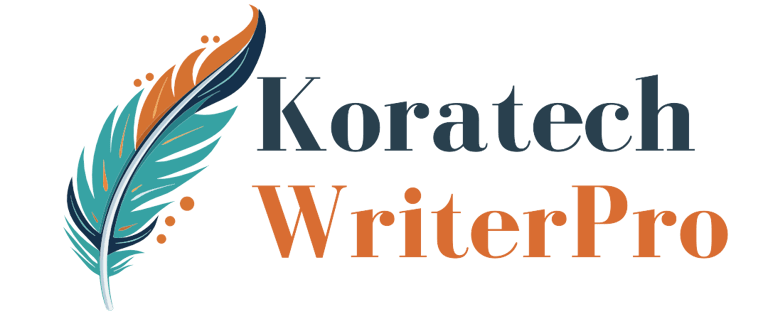Why Publishing a Book Isn’t the End Anymore — It’s the Start
Publishing used to be the finish line — a goal you worked toward, achieved, and celebrated. But in today’s fast-moving, content-driven world, publishing your book is just the beginning. The authors who succeed now treat their launch as the starting point of something bigger: a platform, a brand, a long-term relationship with readers. In this post, we explore how the publishing landscape has evolved and what strategic, forward-thinking authors are doing to build lasting careers beyond the book.
BOOK PROMOTION & MARKETINGSELF-PUBLISHING


Why Publishing a Book Isn’t the End Anymore — It’s the Start
What Modern Authors Need to Know About Building a Career, Not Just Launching a Book
For decades, publishing a book was the ultimate milestone. The finish line. A certificate of legitimacy. Once your book hit the shelves (or the printer), you were “done.” Your job was complete — a publisher might market it, your family might celebrate it, and you’d move on to the next thing.
That’s not how it works anymore.
Today, publishing a book isn’t the end — it’s the beginning of a new phase in your writing career. And if you want staying power in the modern publishing landscape, you can’t afford to treat your book as a one-time event. You have to treat it like an asset — a launchpad for ongoing visibility, authority, income, and growth.
In this blog, we’re going to explore exactly how the industry has changed, why your book is now a beginning — not a conclusion — and what that means for the way you write, publish, and plan for what comes next.
1. Publishing Is No Longer Gatekept — Which Means More Competition
The traditional model used to look like this: write a manuscript, find an agent, get a book deal, and hope the publisher did their job. Most authors never made it through the door.
Now? Anyone can publish a book. And while that’s empowering, it also means that your book is launching into a sea of millions of others. Publishing isn’t rare. Visibility is.
This shift means that publishing your book doesn’t guarantee discovery — it simply gives you the right to start the next phase of your career.
The new mindset:
Publishing is not proof that you’re finished. It’s proof that you’re ready to begin the next level of visibility, credibility, and reach.
2. Author Platforms Are Now Non-Negotiable
You’ve probably heard the term “author platform” before — but let’s strip away the jargon.
An author platform is simply your ability to reach readers. It includes your email list, your website, your blog, your speaking engagements, your media presence, and your social footprint. Without it, your book will remain invisible, no matter how good it is.
A great book without a platform is like a Broadway show with no audience. You might be amazing — but no one knows you’re there.
Practical steps for new authors:
Start building your audience before the book launches, not after.
Use your book as a tool to attract the right readers to your email list or website.
Continue to publish content — newsletters, short stories, blog posts — that keep your audience engaged long after launch week.
3. A Book Is an Entry Point, Not a Final Product
Your book is a door.
A door to speaking opportunities. To collaborations. To deeper programs, courses, or services. To community.
Smart authors understand that the book is just the beginning of the relationship. It builds trust, earns attention, and creates emotional resonance. But the real work (and the real business opportunity) comes from what you do with that attention afterward.
Think beyond the book:
What do you want readers to do after they finish?
Do you have a next step — a newsletter, website, lead magnet, or community?
Are you offering ongoing ways to learn from you, engage with you, or buy from you again?
If you want your writing to lead to a career — not a hobby — you have to think like a builder, not just a writer.
4. The Algorithm Doesn’t Care That You’re Done
We live in a digital-first world. Amazon, TikTok, Goodreads, YouTube — these platforms shape discoverability. And unfortunately, they don’t reward stillness.
If you disappear after publishing your book, you vanish from the algorithm’s view. No engagement = no exposure.
That doesn’t mean you need to be online 24/7. But it does mean you need a content rhythm that signals to platforms — and readers — that you’re active, valuable, and worth engaging with.
Post-publishing strategy tips:
Repurpose content from your book into short posts, quote cards, or videos.
Share the behind-the-scenes of your writing journey.
Engage with other writers and readers in your genre.
Think of yourself as a public presence, not just a private writer. Algorithms reward activity — and activity leads to visibility.
5. Readers Don’t Just Want Books — They Want Relationships
One of the most important changes in the modern publishing world is the shift from transactional to relational marketing. People don’t just want to buy from authors. They want to know them, follow them, root for them.
Your readers are your community now. And that means your job doesn’t end when they finish the last page — it continues as long as they care about your voice and your ideas.
What this looks like in practice:
You write newsletters with personal insight and reader takeaways.
You ask for feedback, reviews, and reader stories.
You write your next book with your readers in mind, not just for yourself.
Authors who build relationships last longer than those who chase sales.
6. Longevity Comes from the Second Book — Not the First
Anyone can publish one book.
The authors who go the distance? They’re already thinking about the second, the third, and the series that ties them all together. They use the first book to test messaging, build a reader base, gather feedback — and then apply everything they learned to make the next one better.
Why this matters:
The first book introduces you. The second book proves you’re worth following.
Reader loyalty compounds. Every book becomes easier to market.
You’re building a brand — not just a bibliography.
Treat each book like a building block. Publishing isn’t a destination. It’s an ecosystem.
Final Thought: The Book Is Just the Beginning
Writing a book is still a big deal. It’s an incredible accomplishment. But it’s not the finish line anymore — it’s the starting line of your next chapter as an author.
The new reality of publishing demands more than just a good manuscript. It demands strategy, visibility, momentum, and a willingness to show up even after the book is “done.”
So celebrate your publication. But then ask yourself: What am I building from here?
Need help turning your book into a long-term platform?
At Koratech WriterPro, we support writers who are serious about building a lasting career. Whether you’re planning your first launch or figuring out what to do after, we’re here to help you grow beyond the page.
